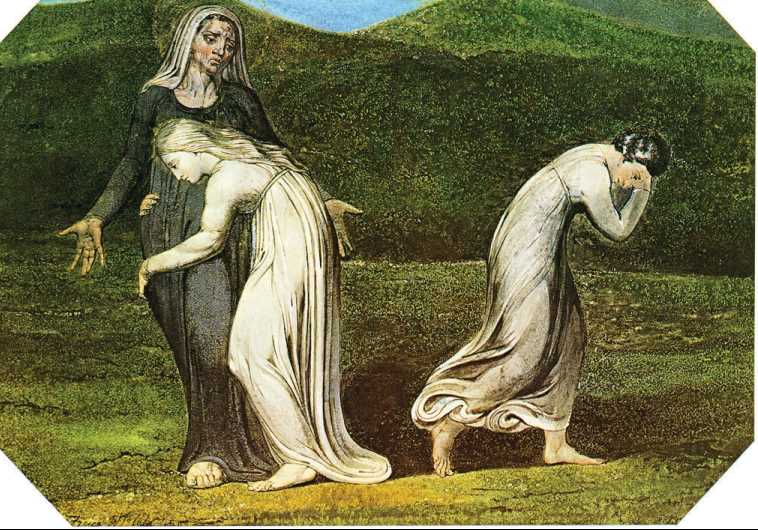Book Review: A novel approach to the Bible
Yael Ziegler employs the literary-theological approach in her study of the Book of Ruth.
 ‘Naomi entreating Ruth and Orpah to return to the land of Moab’ by William Blake, 1795.(photo credit: Wikimedia Commons)
‘Naomi entreating Ruth and Orpah to return to the land of Moab’ by William Blake, 1795.(photo credit: Wikimedia Commons)